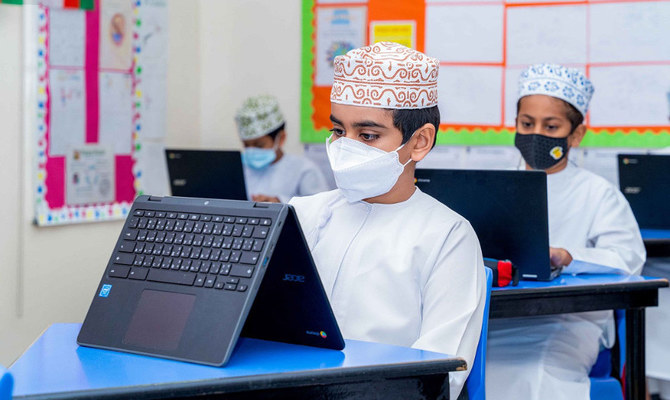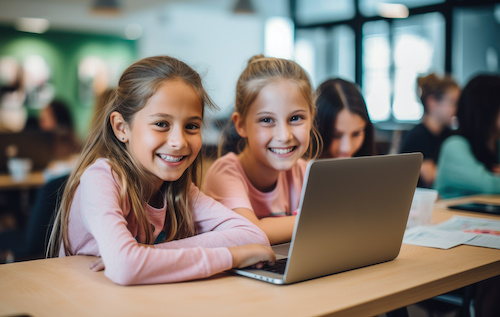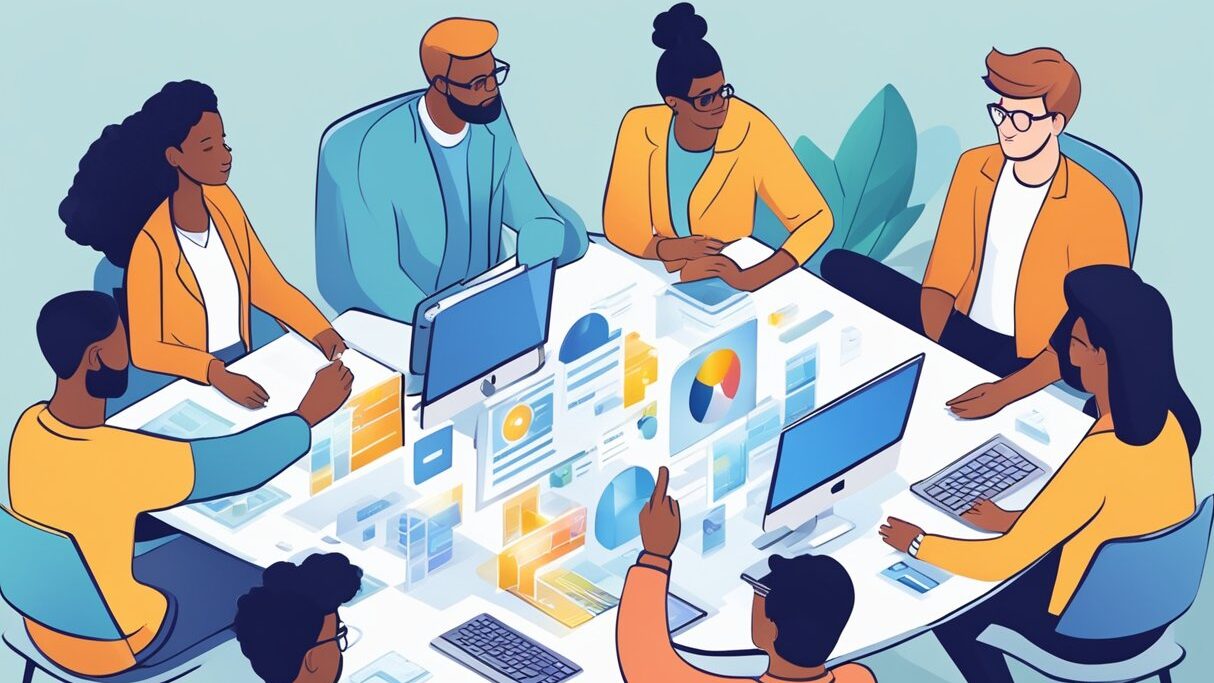A New Era of Learning in Oman
Education in Oman is going through an exciting transformation. For decades, classrooms in the Sultanate have followed traditional methods, with teachers at the center and students listening, taking notes, and preparing for exams. But today, online collaboration tools are breathing fresh energy into the learning environment. From interactive platforms to virtual classrooms, students and teachers in Oman are experiencing a digital shift that is changing how knowledge is shared, understood, and applied. This change is not just about technology; it is about shaping a new mindset that prepares young people for a rapidly evolving world.
Why Collaboration Matters in Modern Education
Collaboration has always been a key part of learning. In the past, group projects in classrooms helped students learn teamwork and communication. But online collaboration tools take this to a whole new level. They allow students to share ideas instantly, work together on projects in real time, and break the barriers of distance and time. In Oman, where schools and universities are striving to equip students for global competition, collaboration is becoming a critical skill. These tools not only make learning more engaging but also prepare learners for workplaces where teamwork across digital platforms is the norm.
From Classrooms to Virtual Classrooms
One of the biggest changes Omani students have witnessed is the rise of virtual classrooms. These are not simply video calls with teachers. They are digital spaces where students can see presentations, interact through chat boxes, participate in quizzes, and even split into smaller groups for discussions. Teachers, on the other hand, can track participation, share resources instantly, and use digital whiteboards for explanations. The sense of being connected, even if physically apart, has created a more flexible and inclusive approach to education in Oman.

Engaging Students Through Interactive Tools
Traditional lectures can sometimes make students passive listeners. But online collaboration tools are shifting that dynamic. Features like polls, quizzes, breakout rooms, and shared documents encourage active participation. In Oman, many teachers are noticing that quieter students, who might hesitate to raise their hands in class, are more comfortable expressing themselves in digital discussions. This creates a fairer environment where every voice can be heard, and every idea has value.
The Role of Teachers in the Digital Shift
While technology is powerful, the real magic happens when teachers use it creatively. In Oman, educators are learning to balance old methods with new tools. Many teachers are finding that using online collaboration platforms allows them to personalize learning. For example, teachers can assign group projects that require online brainstorming, use digital boards to explain complex concepts, or encourage students to create presentations together from different devices. This shift not only saves time but also helps students develop digital literacy and teamwork skills.
Preparing Omani Students for the Future
The future job market is unpredictable, but one thing is certain: collaboration will remain at its core. Whether in engineering, business, healthcare, or creative industries, the ability to work effectively with others often across digital platforms will define success. By introducing online collaboration tools in schools and universities, Oman is giving its students a head start. They are not just learning subjects; they are learning how to think critically, solve problems together, and adapt quickly to new situations.
Bridging the Gap Between Urban and Rural Education
In Oman, not all schools have the same resources. Students in urban areas often have more access to advanced facilities, while rural schools face limitations. Online collaboration tools help bridge this gap. A student in a small town can now join virtual sessions with peers from other regions, share projects, and access the same resources as students in Muscat or Salalah. This equality of opportunity is crucial in building a more inclusive education system that leaves no student behind.
Empowering Group Projects and Research Work
In the past, group projects meant finding time after school, meeting at a friend’s house, and struggling to coordinate schedules. Now, students in Oman can use shared documents, cloud storage, and project management apps to work together without leaving their homes. They can assign tasks, edit each other’s work in real time, and even present their projects online. This not only makes teamwork smoother but also teaches valuable lessons in responsibility, leadership, and time management.
Challenges in Adopting Online Collaboration
Like any transformation, this digital shift comes with challenges. Not all students have equal access to devices or reliable internet. Some teachers need more training to feel confident using new platforms. At times, there is resistance to moving away from familiar teaching styles. However, Oman is taking steady steps to overcome these hurdles. Investment in digital infrastructure, training programs for teachers, and efforts to provide affordable internet are gradually addressing these concerns. The focus remains on ensuring that no student is left behind in this educational revolution.
Building Confidence and Creativity in Students
One of the most inspiring effects of online collaboration tools is the confidence they build in students. When learners contribute to group discussions, present ideas digitally, or co-create projects, they begin to see their potential in new ways. Creativity also flourishes when students experiment with design tools, multimedia presentations, and interactive learning apps. In Oman, this creativity is being encouraged as part of the larger vision to prepare youth for innovation and entrepreneurship.
The Social Side of Digital Learning
Education is not just about academics it is also about building friendships, networks, and communication skills. Online collaboration tools create opportunities for Omani students to interact socially, even outside classrooms. They can join study groups, exchange ideas in forums, and collaborate across schools or even countries. This exposure to diverse perspectives shapes well-rounded individuals who are open-minded and culturally aware, aligning with Oman’s vision of global citizenship.
Government and Institutional Support
The digital transformation in education is not happening in isolation. Oman’s government and educational institutions are actively supporting the use of online collaboration tools. Policies encouraging digital literacy, training sessions for educators, and investments in technology are building the foundation for a modern education system. Schools and universities are increasingly embracing blended learning models, where traditional teaching is combined with online collaboration, creating the best of both worlds.
The Role of Parents in the Digital Shift
Parents in Oman also play an important role in supporting this transition. Many are discovering that online collaboration tools allow them to track their children’s progress more closely. Some tools offer dashboards where parents can see assignments, feedback, and grades. By being more involved, parents can encourage their children to make the most of these resources and balance screen time with healthy offline activities.

A Vision for Lifelong Learning
The impact of online collaboration tools in Oman goes beyond schools and universities. They are also shaping lifelong learning. Adults pursuing professional development, employees upgrading their skills, and individuals interested in hobbies are all benefiting from collaborative platforms. The culture of continuous learning is growing, and Oman is positioning itself as a nation ready to thrive in the knowledge economy.
The Road Ahead for Oman’s Education
The journey of digital transformation in Omani education is only beginning. As technology evolves, online collaboration tools will become even more advanced, integrating artificial intelligence, virtual reality, and interactive simulations. For Omani students, this means richer learning experiences and better preparation for global challenges. The key will be to ensure that technology serves the human element of education fostering curiosity, empathy, and creativity.
Conclusion: A Bright Future Through Collaboration
Online collaboration tools are not just changing how students in Oman learn; they are changing how they connect, share, and grow. They are creating classrooms without walls, opportunities without limits, and futures without boundaries. With the combined efforts of teachers, students, parents, and institutions, Oman is on the path to building an education system that is modern, inclusive, and inspiring. The journey may have challenges, but the direction is clear a brighter future powered by collaboration.
Do follow Gulf Magazine on Instagram.
Also Read- Role of Student-Led Innovation Clubs in Oman



